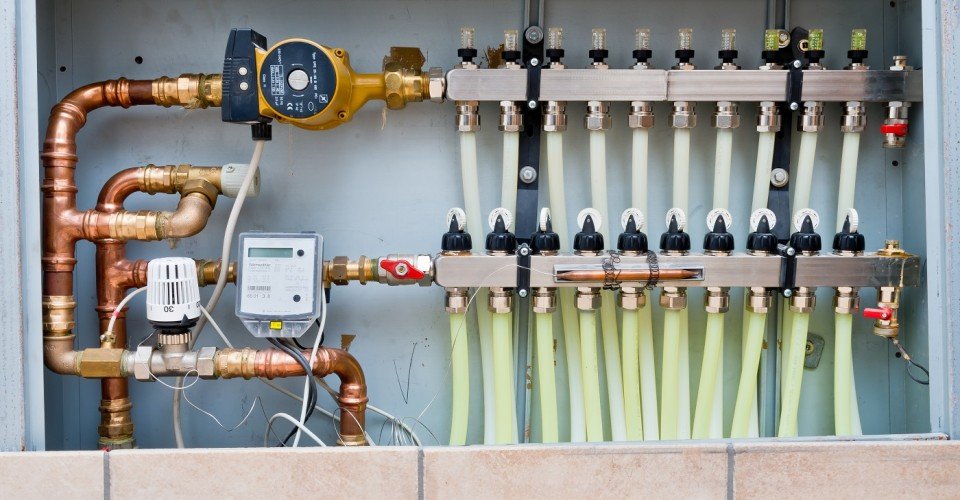Does a Home Warranty Cover HVAC?
Are you wondering if a home warranty covers your HVAC system? Whether you have an old HVAC unit or a newer one, a home warranty can provide comprehensive coverage for your HVAC system, including the air conditioner and even the ductwork. The age of your HVAC system doesn’t matter when it comes to home warranty coverage. Replacing an HVAC system can be costly, with average costs ranging from $5,000 to $34,000. So, a home warranty comes in handy when your HVAC goes awol.
Home Warranty Covers HVAC Units
The good news is that many home warranty plans do cover HVAC systems. This means that even if your HVAC system is reaching the end of its expected lifespan or malfunctions, you can still enjoy the benefits of having it covered by a home warranty.
Home Warranty HVAC Coverage Specifics
Most warranty companies offer a wide range of coverage that can be customized and tailored to meet your specific needs. Some home warranty HVAC policies cover appliances, systems only, or a combination of both. Usually, an HVAC home warranty policy that includes coverage for an HVAC system covers central air conditioning units, heating systems, wall heaters, and water heaters. An excellent home warranty for an HVAC system also includes ductwork, pipes, and thermostats.
When selecting a home warranty for your air conditioner, read the contract thoroughly. Some warranties include routine checks and standard quarterly or yearly maintenance on some home systems, even when no problem is reported. Minor problems can often snowball into larger, more expensive issues when left unchecked. Utilizing any included checks and maintenance appointments is a great way to stay ahead of any major concerns.
When you have issues with your HVAC system, reach out to your warranty company to file a claim. The warranty company will either send a technician they’ve partnered with to evaluate the issue or provide you with a list of approved contractors you can choose from. Each visit requires a flat service fee. This amount is in your contract and won’t change based on the work needed. The technician assesses the problem and performs the necessary repairs. If a technician finds they can’t solve a problem with a repair, they recommend system replacement. The warranty company typically pays for a replacement system with equal capabilities and value. You can often choose to upgrade to a more powerful system if you’re willing to pay the difference in overall cost. Otherwise, the replacement is covered by your HVAC home warranty.
A home warranty for your air conditioner limits your ability to pick and choose when systems are replaced or upgraded and which contractors and technicians you can use. The ability to select a contractor depends on the specifics of your individual policy. When looking for a home warranty, get a detailed understanding of the process to ensure you can use the coverage to its full benefit when the need arises. Often, warranty companies partner with specific contractors, working out a deal that helps them keep costs down.
What Home Warranties Don’t Cover for HVAC
Again, the full details of what is and is not covered can vary from contract to contract. There are, however, some specific items and situations that are seldom covered by home warranties.
First, most HVAC home warranties come with a waiting period between the date the policy is signed and when it takes effect. When signing the warranty policy, check these dates to know when your coverage starts. Warranty companies do this to avoid people purchasing a warranty just because they’ve already discovered they need a massive repair or a system close to failure.
Portable appliances aren’t usually included in your home warranty HVAC coverage. This means AC window units or portable heaters aren’t often covered within a warranty policy, even if they’re your only cooling and heating source.
Any problems with systems or appliances before the warranty took effect may not be covered. For example, your claim could be denied if a technician indicates a filter hasn’t been replaced in years, causing the system to work too hard and not adequately regulate temperatures.
A great way to cover any gaps in a warranty policy is to pair it with homeowners insurance. Usually, an insurance policy will cover the types of repairs and replacements warranty policies don’t. Reading your policy in its entirety and asking any questions upfront will help you gain a better understanding of what your policy does and doesn’t cover.
How Much Does a New HVAC System Cost?
When replacing your HVAC system, it’s important to be prepared for the costs involved. The average price of a new HVAC system can vary depending on factors such as the size of your home, labor costs, and the specific equipment being installed. As of 2023, it is estimated that the average cost of a new HVAC system ranges from $5,000 to $34,000.
A home warranty can be a valuable financial tool in covering the expenses of replacing an HVAC system. By investing in a home warranty plan, you can ensure that you have protection against unexpected repair or replacement costs.
How Porch Whole Home Warranty Protects HVAC Sytems
The Porch Whole Home Warranty offers robust coverage options for both cooling and heating systems. Under the plan, the primary central air conditioning system, including various mechanical parts and components like compressors, fan motors, and thermostats, is covered up to a maximum of $1,500 per term. The warranty similarly covers parts such as burners, fan blades, and heat exchangers with the same financial cap for the heating system.
This policy ensures that homeowners can maintain their systems effectively by recommending monthly filter replacements and periodic cleanings, adhering to manufacturer guidelines. However, certain exclusions, like secondary units, window units, and systems that exceed a 5-ton capacity, are not covered under this warranty. This plan suits those seeking to minimize unexpected repair costs while ensuring their heating and cooling systems operate year-round smoothly.
HVAC Maintenance and Home Warranty Coverage
Proper maintenance of your HVAC system directly impacts longevity and optimal performance. While a home warranty can cover HVAC systems, it’s important to understand the impact of maintenance on warranty coverage.
HVAC Maintenance
Maintaining your HVAC system regularly offers several benefits. First, it helps to improve the overall energy efficiency of the system, resulting in lower utility bills. Additionally, regular maintenance can prevent breakdowns and costly repairs, allowing technicians to identify and address potential issues before they escalate. Proper maintenance also ensures better indoor air quality and a comfortable living environment for you and your family.
Impact of HVAC Maintenance on Warranty Coverage
Most home warranty providers require evidence of routine HVAC maintenance to validate warranty coverage. This means you may need to keep records of maintenance tasks such as filter changes, cleaning, and scheduled checkups. By adhering to the recommended maintenance schedule and documenting the maintenance activities, you can ensure that your warranty coverage remains intact and that potential claims are successfully processed.
Home Warranty and HVAC Maintenance
Combining a home warranty with regular HVAC maintenance creates a comprehensive approach to protecting your system. While a warranty covers unexpected repairs or replacements, proper maintenance helps prevent such issues from arising in the first place. By investing in both a home warranty and routine maintenance, you can enjoy the long-term benefits of a reliable, efficient, and well-maintained HVAC system.
A home warranty can be a valuable investment for homeowners. Providing coverage for the entire HVAC unit, including the ductwork, a home warranty can help offset the repair or replacement costs. Now that you understand the extensive coverage options for HVAC systems under home warranties, you can make an informed decision about purchasing or renewing your plan. Remember, a well-chosen home warranty can save you from hefty repair bills.

